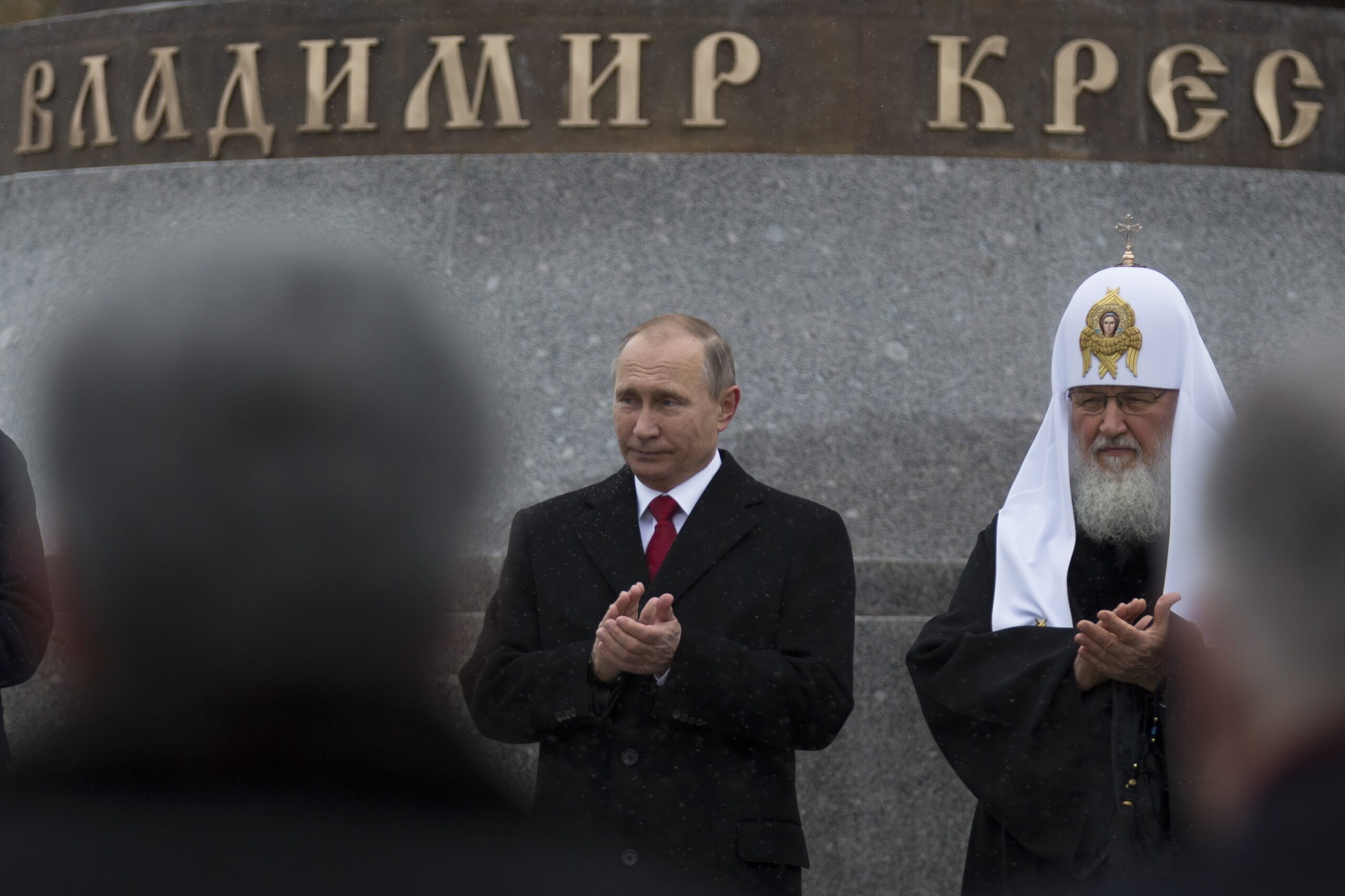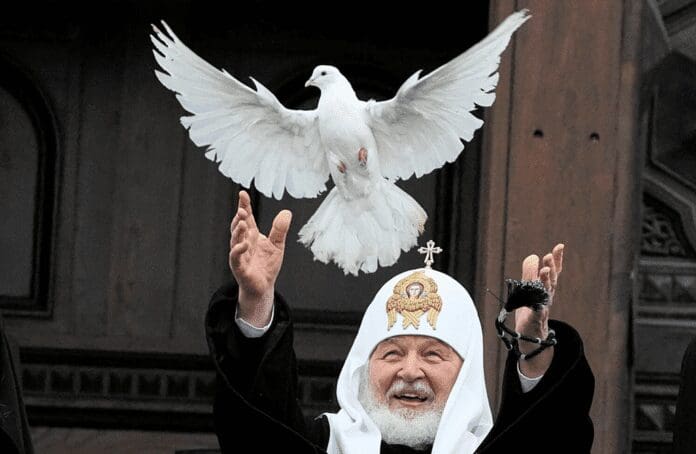(RNS) — The World Council of Churches is under pressure to oust the Russian Orthodox Church from its ranks, with detractors arguing the church’s leader, Patriarch Kirill, invalidated its membership by backing Russia’s invasion of Ukraine and involving the church in the global political machinations of Russian President Vladimir Putin.
The debate garnered a response on Monday (April 11) from the Rev. Ioan Sauca, acting general secretary of the WCC, which claims 352 member churches representing roughly 580 million Christians around the world.
Sauca, a priest in the Romanian Orthodox Church who has visited Ukrainian refugees and publicly criticized Kirill’s response to the invasion, pushed back on the suggestion of expelling the ROC, arguing doing so would deviate from the WCC’s historic mission to enhance ecumenical dialogue.
“It is easy to exclude, excommunicate, demonize; but we are called as WCC to use a free and safe platform of encounter and dialogue, to meet and listen to one another even if and when we disagree,” Sauca said in a lengthy series of statements posted to the WCC website.
“This has always been the WCC, and I would suffer greatly if during my time this vocation will be lost and the nature of the WCC changes.”
But Sauca may be facing increasing headwinds as the WCC, a global Christian ecumenical group founded in 1948 in the aftermath of World War II, prepares for a major meeting of its central committee in June. With the war continuing to rage in Ukraine, where Russian forces have been accused of committing war crimes against civilians, a growing chorus of Christian voices is questioning whether the WCC should cut ties with what is seen as a complicit ROC.
In late March, Czech theologian, pastor and ecumenical leader Pavel Cerný published an editorial insisting the ROC has long sought to use the WCC for its own purposes. In the wake of Kirill’s support for the Ukraine invasion, Cerný said that “the ROC should not be permitted to continue as a WCC member until it turns away from this false path of religious nationalism.”
Two days later, the Rev. Rob Schenck, an evangelical Christian and president of the Dietrich Bonhoeffer Institute in Washington, D.C., published his own editorial at Religion News Service calling on the WCC to sanction Kirill and referring to him as “a propaganda tool for Putin.”

Russian President Vladimir Putin, center, and Russian Orthodox Patriarch Kirill applaud during the unveiling ceremony of a monument to Vladimir the Great on the National Unity Day outside the Kremlin in Moscow, Russia, Friday, Nov. 4, 2016. (AP Photo/Alexander Zemlianichenko)
“Supporters of the effort to oust Kirill from the WCC believe he has disqualified the ecclesial entity he embodies by effectively endorsing Putin’s military campaign to annex Ukraine and failing to oppose the attendant mass violence against a peaceful nation,” Schenck wrote. “Not only does Putin’s bloody and mostly Christian-on-Christian conflict subvert the WCC’s mission statement, but it stands in stark contradiction to and rejection of Jesus’ high priestly prayer to his heavenly Father, ‘that they may be one as we are one’ (John 17:11b).”
Schenck was echoed shortly thereafter by former Archbishop of Canterbury Rowan Williams, onetime head of the Anglican Communion, who told the BBC there is a “strong case” for removing the Russian church from the WCC.
“When a church is actively supporting a war of aggression, failing to condemn nakedly obvious breaches in any kind of ethical conduct in wartime, then other churches do have the right to raise the question and challenge the church and to say, ‘Unless you can say … something recognizably Christian about this, we have to look again at your membership,’” Williams said.
The pushback is part of a broader wave of criticism directed at Kirill, who has long aided Putin’s political ambitions and laid the spiritual groundwork to justify the Russian invasion of Ukraine. His rhetoric since the invasion began — such as referring to Russia’s enemies in Ukraine as “evil forces” and suggesting the war is part of a larger “metaphysical” battle against the West and “gay parades” — stoked outrage among religious leaders the world over, including Sauca himself.

